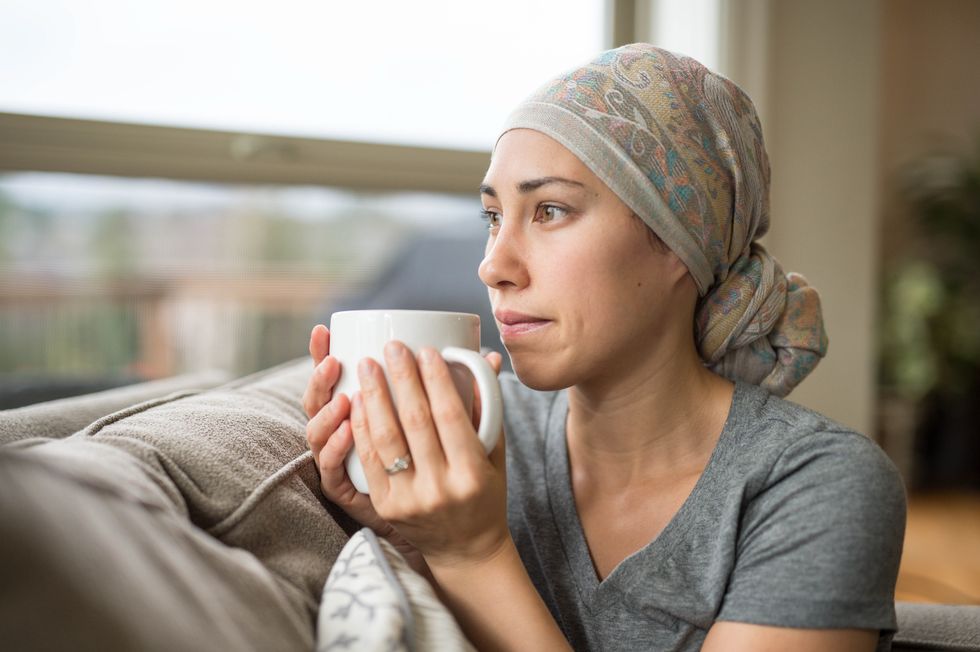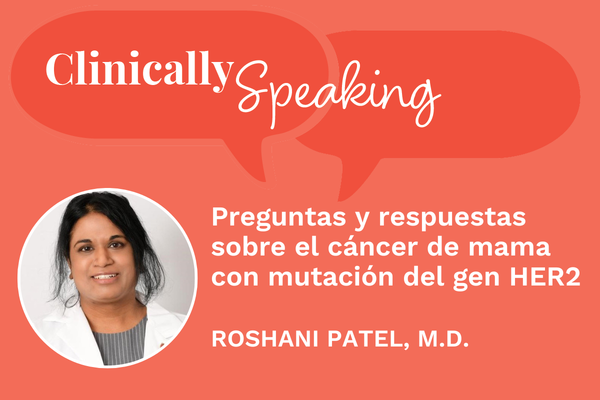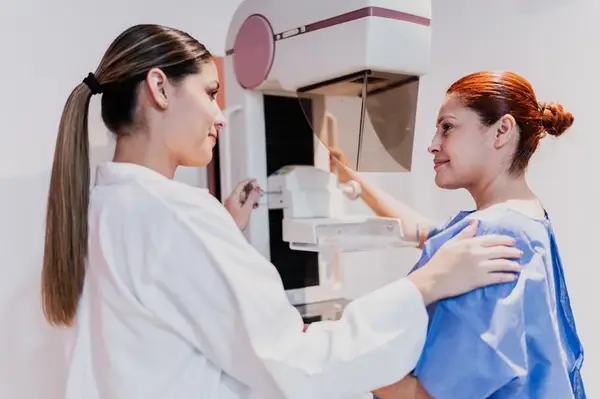If you think breast cancer is just breast cancer, it's not. There are many different varieties.
Two out of three breast cancers that are diagnosed contain receptors that pick up signals from hormones or proteins—estrogen, progesterone or HER2—that stimulate their growth. In addition to chemotherapy, these types of breast cancers can be targeted with hormonal therapy (tamoxifen or aromatase inhibitors) or other drugs to that slow or halt the growth of errant cells (like trastuzumab [Herceptin], for HER2-positive cancers).
But 10 percent to 20 percent of all diagnosed breast cancers fall into a different subtype. Triple negative breast cancer (TNBC) gets its name because it lacks any of the above three receptors; its growth is not dependent on the presence of estrogen, progesterone or HER2. Like other types of breast cancers, TNBC is treated with surgery, radiation and/or chemotherapy, but, unlike the other types of breast cancers, hormonal therapy or drugs to block the HER2 receptors will be ineffective.
Find out What Every Woman Needs to Know About Breast Cancer.
TNBC, which is a hormone-receptor-negative cancer, tends to be more aggressive and more difficult to treat than other types of breast cancer. It's more likely to occur in younger, premenopausal women (before age 40 or 50) and in Hispanics, African Americans (who are three times more likely to develop it than white women) or those with the inherited genetic mutation BRCA 1.
Because there are fewer options for treatment, there's intense research into ways to treat it and ways to interfere with the process that causes it to grow in the first place.
There is some encouraging news: some studies have found that TNBC may actually respond better to chemotherapy than the more common breast cancers. Work continues to search for the best ways to treat TNBC.
Some clinical trials are underway to compare the effectiveness of different chemotherapy regimens using both older and newer medications. Other research is aiming to find targeted therapies that can shut down the process that causes the cancer cells to grow and flourish. And some studies have found that receiving chemotherapy before surgery—known as neoadjuvant therapy—could increase survival rates in women with TNBC. To get started searching for clinical trials, visit HealthyWomen's Clinical Trial Navigation Service.
Research is still at an early stage, with the hope that in the future, there will be many effective ways to combat this cancer. Clinical trials are underway on treatments including PARP inhibitors, which can help enhance chemotherapy by repairing damage to DNA caused by that chemotherapy; VEGF inhibitors, which block the action that creates new blood vessels that fuel the spread of cancer cells; and EGFR-targeted therapies, which blocks the growth factor found on many triple-negative breast cancer cells.
Despite the fact that triple-negative breast cancer tends to be more aggressive, there are no standard recommendations that if you have it, you should be more aggressive in choosing your type of surgery (lumpectomy vs. mastectomy) or the amount of chemotherapy you receive.
As with many medical decisions, exploring your options is always a wise choice.
If you have triple negative breast cancer, the Triple Negative Breast Cancer Foundation has help resources, including:
The Guide to Understanding Triple Negative Breast Cancer
They also have forums where you can connect with our women who have Triple Negative Breast Cancer. You can view them here.







